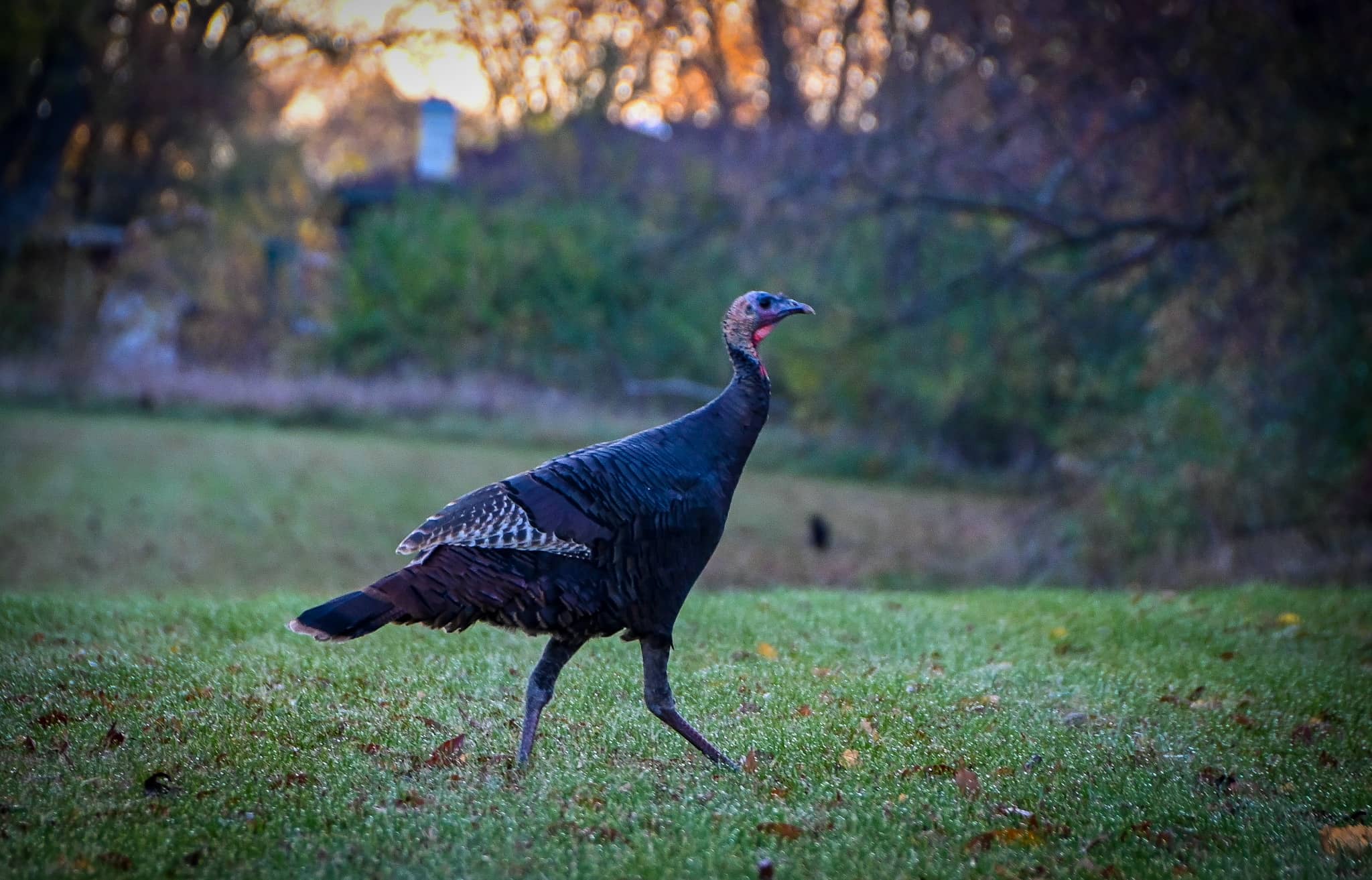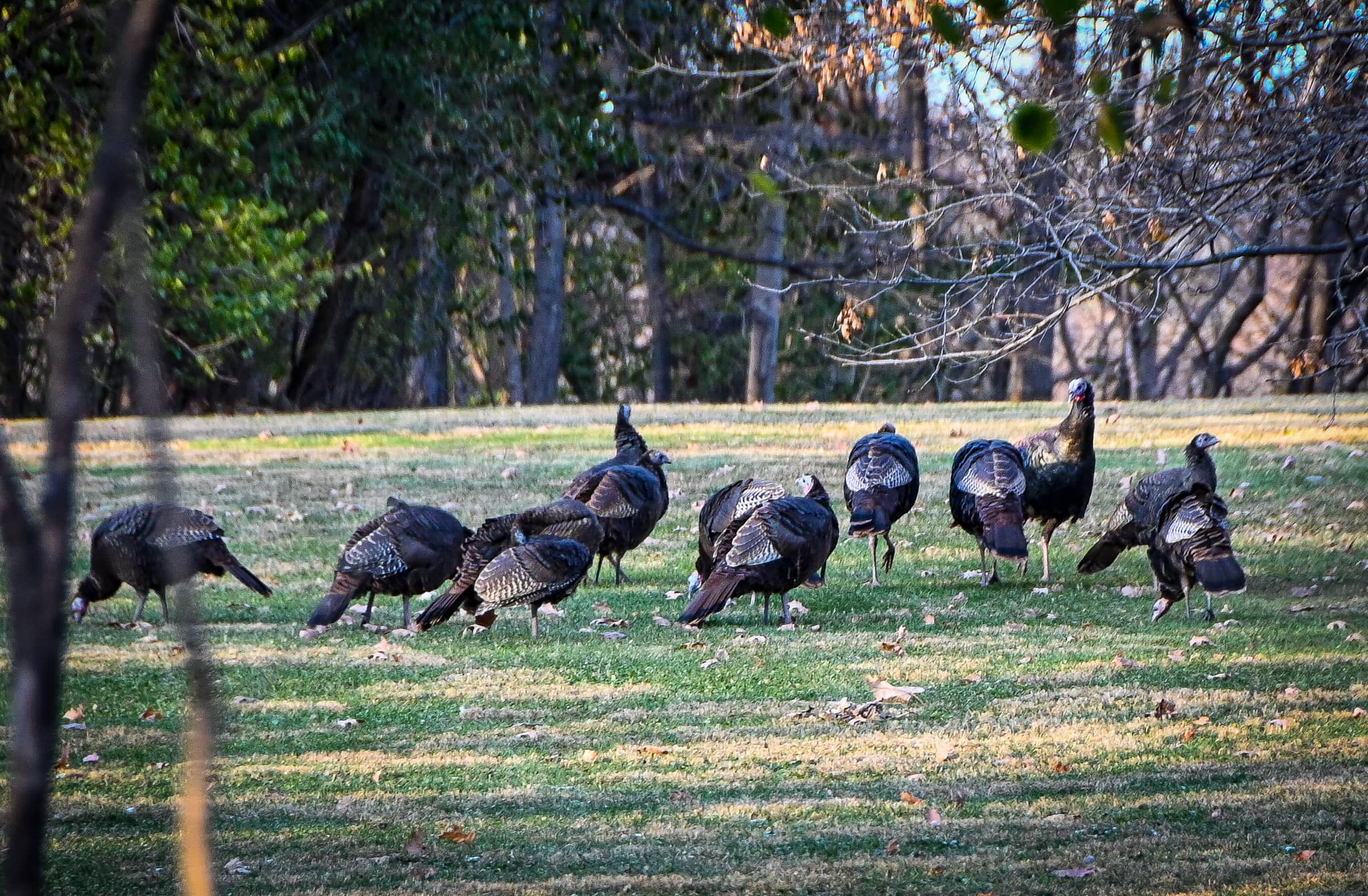
By Mary Sisk
Rock River Current
Get our mobile app
ROCKFORD — Sydney Baldwin’s dogs typically scare off anything that moves through her yard, but turkeys hold their ground.
“My dogs go out and bark at them and the turkeys just look at them,” Baldwin said. “The other day my dogs were barking at them, they came across the street to see the dogs. They came right up to the fence.”
Turkeys get their time in the spotlight this week as Thanksgiving approaches, but for many Rockford-area residents the fowl are a constant all year long.
Once nearly extinct, wild turkeys are now numerous in every county in Illinois, according to the Illinois Department of Natural Resources. It’s not uncommon to see a rafter of toms and hens pecking through grassy residential yards, or, like Baldwin saw, co-mingling with dogs.
“As long as a dog is not being threatening or aggressive, turkeys can co-exist with both humans and their pets without issue,” said Jennifer Kuroda, president of the Sinnissippi Audubon Society. “That dog probably approached them in a non-threatening way and they have accepted it.”
More birds: Rockford named an Illinois Bird City. Here’s how it earned the designation
Turkeys are attracted to residential areas in Rockford because of the abundance of trees to roost in, a lack of predators and an ample supply of food, Kuroda said. The birds will eat seeds, insects, some plants and other earth-grown snacks readily available in any residential area.
“We forced them into suburban and urban areas just because of habitat loss,” Kuroda said. “In the suburban and urban areas, they have no predators.”
The Illinois Department of Natural Resources says that conservation efforts to restore the wild turkeys in the state began in the 1950s and continued into the early 2000s, making for “one of the greatest success stories in wildlife conservation.”
The wild turkey population in Illinois now sits at approximately 150,000, and one of the largest populations of turkeys live in northern Illinois, according to Knoch Knolls Nature Center in Naperville.
In Rockford, wild turkeys are regular residents in neighborhoods near Calvin Park Boulevard, Phelps Avenue, Alpine Road, Harlem Road and near Rock Cut State Park, among several other locations readers told us about in response to a Facebook post.

Geese, another large bird frequently spotted in the city, will approach humans looking for food. But turkeys are less interested in interacting with people.
“They’ll be out in your front yard, they’ll be out in your back yard,” said Karen Herdklotz, director of “Hoo” Haven Wildlife and Education Center. “I would call them very mellow.”
More birds: Their hiss is worse than their bite, and this time of year they’re everywhere in Rockford
If you do happen to notice a rafter of turkeys in your yard and you’d like them to leave, Kuroda and Herdklotz suggested making loud noises, moving around and gently shooing them away.
Turkeys are also interested by shiny objects, so if you have shiny ornaments in your yard that might be what keeps them coming back.
If you’re fond of the turkeys, you can leave them healthy snacks like cracked corn or bird seed. But you should avoid bread and other carbs that can be harmful to the birds if they eat too much of it.
Overall, if turkeys frequent your yard, they like it there and feel safe.
“People forget they roost in trees,”Herdklotz said. “They feel safe. If you have a garden or you mowed your grass or they can get into any birdseed left over they’re gonna do that too.”
More: Mosaic towers create colorful new ‘landmarks’ in Rockford’s Coronado-Haskell neighborhood
Turkey facts
- Wild turkeys can fly for short periods of time
- They roost in trees
- A flock of turkeys is called a rafter
- They have extremely sharp claws and Native Americans used to use them to make their arrows
- Foxes and raccoons love to eat turkey eggs
- Adult male turkeys are called toms and females are called hens
- The wild turkey was Benjamin Franklin’s preference for the national bird.
This article is by Mary Sisk. Email her at msisk@rockrivercurrent.com or follow her on Instagram at @maryrrcurrent





